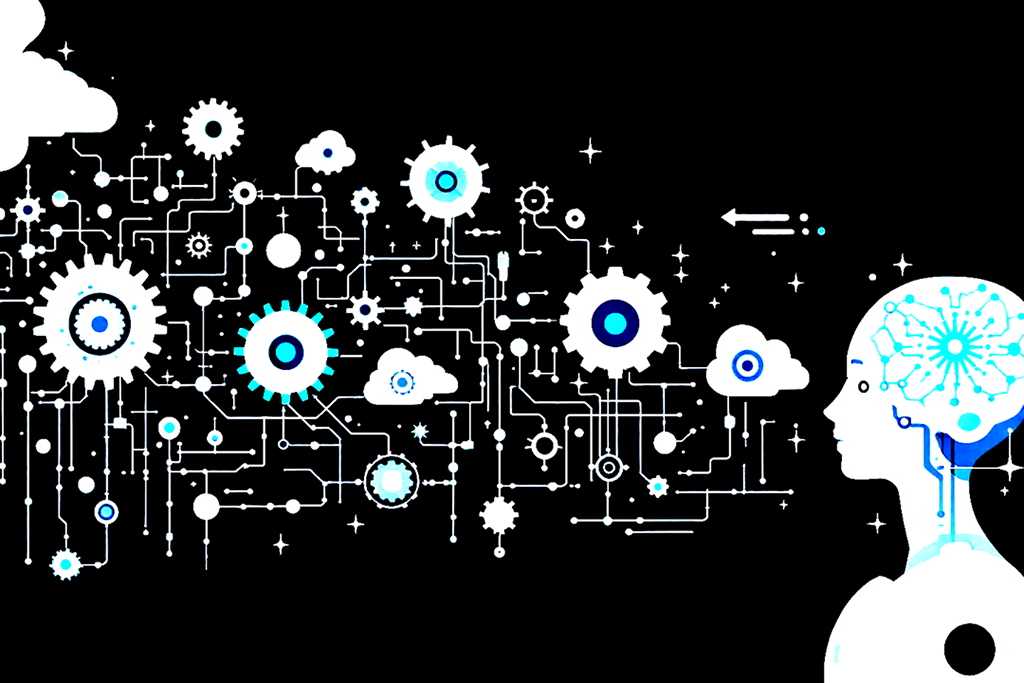
Table of Contents
ToggleIntroduction:
Artificial Intelligence (AI) has evolved from a futuristic conception to an integral part of our day-to-day lives. From voice sidekicks to individualized recommendations, AI is reshaping how we interact with technology, work, and indeed relax. The rapid-fire advancements in machine education, natural language processing( NLP), and computer vision have made AI more accessible and practical than ever ahead.
In this blog, we’ll explore how advanced AI is being administered in colorful aspects of diurnal life, the benefits it brings, and the implicit challenges that come with its wide relinquishment.
1. AI in Personal Assistants and Smart Homes
Voice-Activated Assistants
AI- powered particular sidekicks like Siri, Google Assistant, and Alexa have come home masses. These assistants use natural language processing( NLP) to understand and respond to voice commands, helping consumers with:
- Setting reminders and alarms
- Answering questions in real-time
- Controlling smart home devices
- Playing music and managing entertainment
Smart Home Automation
Artificial Intelligence AI- driven smart home systems, similar as Google Nest and Amazon Echo, learn stoner preferences over time to optimize energy operation, security, and convenience. exemplifications include:
- Smart thermostats adjusting temperatures based on occupancy
- AI-powered security cameras detecting unusual activity
- Automated lighting systems that adapt to daily routines
These innovations make homes more efficient, secure, and user-friendly.
2. AI in Healthcare and Wellness
Personalized Health Monitoring
Wearable bias like the Apple Watch and Fitbit use AI to track vital signs, including:
- Heart rate variability
- Sleep patterns
- Physical activity levels
Artificial Intelligence AI algorithms dissect this data to give individualized health perceptivity, descry anomalies (similar as irregular jiffs), and indeed alert druggies to implicit health pitfalls.
Artificial Intelligence AI in Medical Diagnosis
Hospitals and clinics are adopting AI-powered diagnostic tools to:
- Analyze medical images (X-rays, MRIs) with higher accuracy than human radiologists
- Predict disease progression using patient history and genetic data
- Assist in drug discovery by simulating molecular interactions
For illustration, IBM Watson Health helps medical teams make data- driven opinions, while AI chatbots give primary medical advice..
Mental Health Support
AI- driven internal health apps like Woebot and Wysa offer cognitive behavioral therapy (CBT) ways, mood tracking, and emotional support through conversational AI.
3. AI in Transportation and Navigation
Autonomous Vehicles
Self-driving cars from companies like Tesla, Waymo, and Cruise depend on AI for:
- Real-time object detection (pedestrians, other vehicles)
- Route optimization based on traffic conditions
- Predictive maintenance to prevent breakdowns
While completely independent vehicles are still in development, Artificial Intelligence enhanced motorist backing systems (like Tesla Autopilot) are formerly perfecting road safety.
Artificial Intelligence AI in Traffic Management
Metropolises are using AI to:
- Optimize traffic light timings to reduce congestion
- Predict accident-prone zones using historical data
- Enhance public transportation scheduling
Navigation Apps
Google Maps and Waze use AI to:
- Suggest the fastest routes on real-time traffic
- Predict arrival times with high accuracy
- Recommend nearby restaurants and services
4. AI in E-Commerce and Retail
Personalized Shopping Experiences
AI algorithms analyze browsing history and purchase behavior to offer tailored recommendations. Examples include:
- Amazon’s “Customers who bought this also bought…”
- Netflix’s movie and show recommendations
AI-Powered Customer Support
Chatbots and virtual assistants (like Zendesk’s Answer Bot) handle customer inquiries, process returns, and provide instant support, reducing wait times.
Cashierless Stores
Amazon Go stores use computer vision and sensor fusion to allow shoppers to grab items and walk out without manual checkout—AI handles the billing automatically.
5. Artificial Intelligence AI in Finance and Banking
Fraud Detection
Banks use AI to:
- Detect unusual transactions in real-time
- Prevent identity theft using behavioral biometrics
- Flag phishing attempts
Artificial Intelligence AI-Powered Financial Advisors
Robo-advisors like Betterment and Wealthfront use AI to:
- Automate investment strategies
- Optimize portfolios based on risk tolerance
- Provide tax-loss harvesting
Credit Scoring and Loan Approvals
AI evaluates alternative data (social media activity, utility payments) to assess creditworthiness, helping underserved populations access loans.
6. Artificial Intelligence in Education and Learning
Personalized Learning Platforms
AI-driven platforms like Khan Academy and Duolingo adapt lessons based on student performance, offering customized exercises and feedback.
Automated Grading Systems
Teachers use AI tools to grade assignments, detect plagiarism, and provide instant feedback, saving time and improving accuracy.
Virtual Tutors and Language Learning
AI chatbots like ChatGPT assist with homework, while apps like ELSA Speak help users improve pronunciation through real-time feedback.
7. AI in Entertainment and Media
Content Creation
AI tools like DALL·E, MidJourney, and ChatGPT generate:
- Art and graphics
- Music compositions
- News articles and marketing copy
Streaming and Recommendations
Platforms like Spotify and YouTube use AI to curate playlists and suggest videos based on user preferences.
Deepfake and AI-Generated Media
While controversial, AI-generated deepfakes are used in filmmaking (e.g., de-aging actors) and advertising, raising ethical concerns.
Challenges and Ethical Considerations
Despite its benefits, Artificial Intelligence AI implementation comes with challenges:
- Privacy Concerns: AI collects vast amounts of personal data—how is it stored and used?
- Job Displacement: Automation may replace certain jobs, requiring workforce reskilling.
- Bias in AI: Algorithms can inherit human biases, leading to unfair decisions.
- Security Risks: AI systems can be hacked or manipulated (e.g., deepfake scams).
The Future of AI in Daily Life
As AI continues to evolve, we can expect:
- More seamless human-AI collaboration (e.g., AI co-workers)
- Enhanced personalization in healthcare, education, and shopping
- Stronger regulations to ensure ethical AI use
Conclusion
Advanced Artificial Intelligence is no longer a sci- fi fantasy — it’s deeply bedded in our diurnal routines, making life more effective, substantiated, and connected. While challenges remain, responsible AI development promises a smarter, more intuitive future.
Are you ready to embrace AI in your daily life? The revolution is already here!
